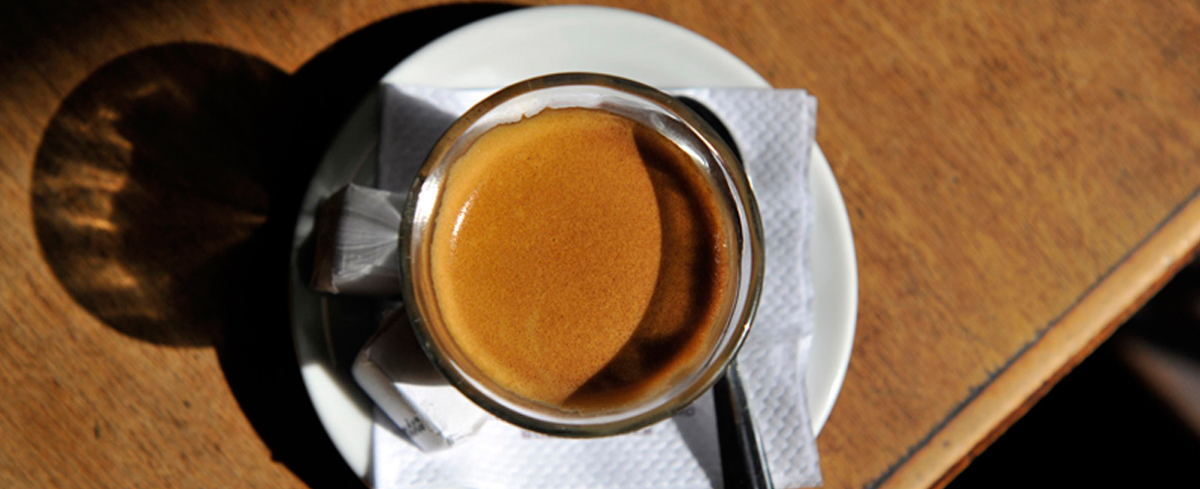It’s 8am and Pedro, a young man in blue shirt and beige slacks is finishing his morning coffee in front of the grand stained glass windows of Confitería Las Violetas. It’s part of his daily routine, a moment of calm before making his commute on the subte from the neighbourhood of Almagro to the chaotic city centre.
Close to the law courts, in the area known as Tribunales, a lawyer sits with his client at a table on the pavement outside the Petit Colón over coffee and medialunas. In an animated conversation, gesturing expressively, they run through the latest developments in the client’s lawsuit over coffee and medialunas, then suddenly the lawyer has to dash. It’s already 11am.
Now close to midday, in the neighbourhood of Boedo, staff from nearby businesses start filling into Café Margot or order turkey sandwiches made the same way they were 70 years ago when legend has it Juan Domingo Perón stopped by here to make the same order..
The cafes are part of Buenos Aires’ history, not only because many of them were the habitual meeting places of important characters from the city’s past, but because they’re such intense expressions of local identity. We Porteños value our roots, and so do our cafes, with names that often reference their origins (Bar Iberia, Bar Británico, Bar El Colonial, Bar La Nueva Andaluza), founding families (Café de García, Bar de Cao, Il Café Thibon and locations in the city (Bar Lavalle, Café de la Esquina, Café de la U in Urquiza.)
At 3pm in Café Palacio, in the neighbourhood of Chacarita, a keen amateur photographer with her camera around her neck inhales the aroma of freshly ground coffee as she studies the more than 2000 images and many vintage cameras on display.
In café Don Victoriano, a man with a prominent belly and a raspy voice ask questions about the spices on sale and opts for cayenne pepper, caraway and paprika. He’s keen to get back home in time to prepare dinner for the evening. It’s 4pm.
At 5pm, a father picks up his 10-year-old son from school and takes him for a birthday treat: a cup of hot chocolate with churros at a table in the window at La Giralda, It’s now the fourth year of a tradition that will continue for many more years to come,
No one knows the answer, but many people ask: why are there so many cafes on corners in Buenos Aires? Café de Los Angelitos, La Biela, Bar Sur, Bar El Federal, Café La Poesía, Café El Buzón, Los Galgos are just a few. At this last venue, a group of musicians are sitting at their usual table. The faces aren’t always exactly the same, but they know that each week by 7pm, at least someone from the group will be there.
At Café Tortoni, a couple of tourists wait in line for the evening’s tango dinner show. They’ve been told they shouldn’t leave town without paying a visit to the legendary cafe. Just five blocks away on Avenida de Mayo, more tourists watch with fascination as the old timers’ chalk up their cues at Los 36 Billares, one of the most traditional billiard halls Latin America.
From 10pm until midnight, a group of youngsters celebrates the fifth anniversary of their school graduation with beers and games of table tennis at Café San Bernardo, where nights go on late and youth is eternal.
Tired after a night a work, a man with a grey moustache and thick-rimmed glasses heads for home, but he stops on the corner of Callao and Corrientes, where he knows he’ll find someone he knows, probably another security guards with whom he plays cards, domino or darts at Bar La Academia in the early hours after a night shift. At the same time, over in Almagro, Pedro, a young man in beige slacks enters the doors of Las Violetas to order his morning coffee.
